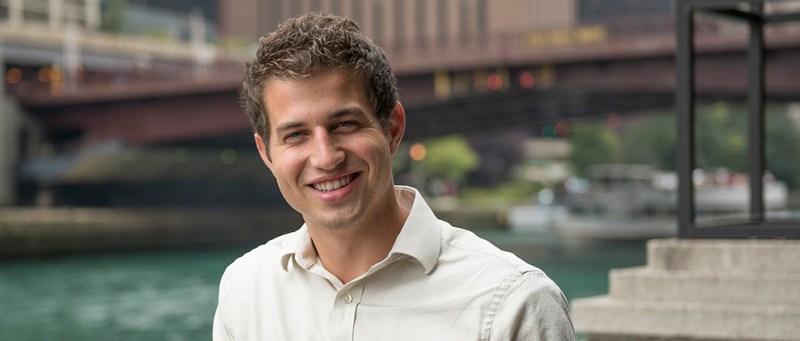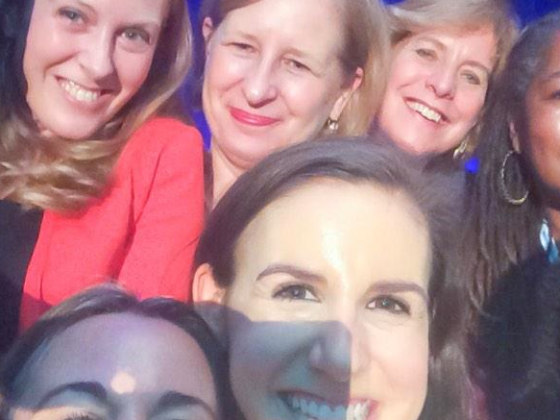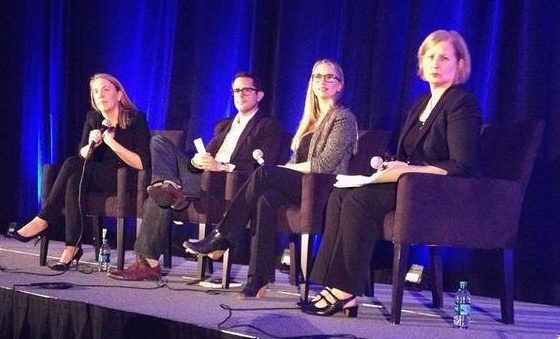The sound of an acoustic guitar reverberated throughout the church hall as the band slowly took up the chords of “Amazing Grace.”
Chairs pushed back, scraping the wood floors as the congregation rose to join their voices with Pastor Jonah’s as he started to sing. Dressed in a pair of black skinny jeans and a red-checkered, collared shirt, Pastor Jonah looked more like the skateboarders who frequented the skate park down the street from the church in Prescott, Arizona, than a worship pastor.
Unlike the solemn, traditional hymns typical in our Lutheran church, Pastor Jonah’s choices of contemporary Christian songs like “Mighty to Save” and “I Can Only Imagine,” were more like the set list for a rock concert. As Jonah sang through his songs, pockets of the congregation sat down, shuffling uncomfortably. And as Jonah finished his third song, it was clear the church had rejected his music.
Near the end of the song, only he and I remained standing in the auditorium. Our voices sounded small and alone, hopeless against the overpowering silence of the other parishioners rejecting his music. Pastor Jonah was never invited back.
That morning, I lost my faith in Jesus Christ. I was 19 years old and had spent my entire life going to church in Arizona and California. It was the last worship I ever willingly attended.
While my love for my church ended that morning, it actually had been a long, hard process of breaking up.
It wasn’t always that way. I once believed in my church. As a small child, my world was filled with “answers” that always came from Him. No question ever was left unanswered so long as I could invoke His name.
I trace my religious journey back to the country of Angola, where an Irish man and his American wife made a life in the 1950s among the baobab trees just outside the city of Luzo.
From a distance, the suit that pastor Clifford Beggs wore looked well kept and out-of-place among the hubbub of the public square. But a closer inspection showed the wear and tear that came with the beating down of the African sun.
The house that Clifford built for his wife Shirley and himself wasn’t a large house, but it was a house of God. And Clifford wasn’t just a local pastor: He was a prominent missionary for the Lutheran Brethren Church.
He was also my grandfather.
Growing up in Arizona, I thought my faith would be something I would always have: an unwavering passion that would stick with me for life. It was the strong, thick, corded rope that I clung to as I gingerly crossed the rickety and oft times shaky rope-bridge that was my faith over the vast unknown of what I thought awaited me outside the light of God.
And when my faith faltered, my grandfather was there to save me from falling out of faith.
For many years long after he had hung up his favorite suit, Grandpa Clifford and I would sit among the roses that filled the back porch of their house in Oakland, California. My fingertips were freckled with spots of grey and light blue paint from the last 30 minutes that he and I had spent painting model airplanes. His hands were clean but stained and wrinkled from his time adventuring around the world.
Every time he placed his arms around me, his palms soft and warm–my 5-year-old self always thought that it was from all those years carrying the Bible.
My relationship with my grandfather was special. Whenever we were together, he’d fill my mind with tales from Angola and Brazil. His cherry cheeks and straight nose creased as he laughed, reminiscing over old memories and faces. My grandfather’s spirit was infectious to all those he met, including my young self.
“Jesus loves us, Alan,” my grandfather would say, his voice craggy with age. “And when you put your faith in him, he will always provide for you, you’re always part of his plan.”
And I believed him, for the most part. He led my family in believing that prayer and rock-solid faith was fundamental to living a healthy life. Except it didn’t always quite work for me. Getting the right answers matters to me. Answers that are factually driven are reliable and steady; it takes the guesswork out of the equation.
Time and time again, the tall tales of Christianity failed to provide me with the facts that I needed in order to be faithful. Where did God come from? Why does he allow genocide? How can his people deny evolution? The answer I was given to all of these questions: “You just have to believe, Alan.”
My grandfather went home to his Lord on February 17th, 2009. And as he was buried and sealed amongst a bed of roses, a good part of my faith stayed in the ground with him.
With my grandfather gone, the beauty that I had previously seen in faith had all but washed away, and my need for proof took over. Belief was no longer good enough. I decided to find my own answers.
It’s not that I didn’t believe in the teachings of Christianity. Being faithful, honoring your mother and father, being kind to other, these are all wonderful ideas included in Christianity.
But I think am too much of a realist to be a Christian. The freedom that comes with being the master of my own fate is just more appealing than a life of servitude to God.
Over the years, I got tired of dealing with all the pressures of Christianity. From having to reject the LGBTQ community to constantly having my faith being questioned, the entire ordeal was exhausting.
Yet leaving the Christian church was the hardest thing that I had ever done. It spiritually separated me from the only life that I had ever known. It left me feeling empty and directionless.
The only institution that I had left was my education.
Compared to the love and sense of community that came with being involved in a church, college seemed superficial and unfulfilling. The facts that I needed were there, but the brotherhood that I experienced at church, was missing. However it was something on which I could build.
I found that the education system was a lot like organized religion: It had leaders that provided information and peers that I could interact with. The big difference was the validity of the information I was given.
Subjects like human anatomy and journalism were tangible and rational; they didn’t require faith. If I racked my brain hard enough, studied and interacted with my classmates and professors, I was given answers. Real answers, driven by facts, and they could withstand being tested and questioned and replaced with more updated information when necessary.
My passion for education eventually led me to agnosticism. It seemed to me that agnostics did the best with what they were given. The idea of acceptance, believing that no individual had the right answer, in my opinion paralleled much of what the education system taught me.
Just a few days ago, I decided it was time to have the talk with my parents about my change in beliefs. As I was writing this story, I realized how unfair it would be to publish my story without telling the people who helped mold it. Despite my apprehension, it turned out that they were more blasé about my change of heart than I thought they would be. I think they are in denial, and although it saddens me, I don’t regret my decision to tell them.
Life is too short to run from who I am really am.






